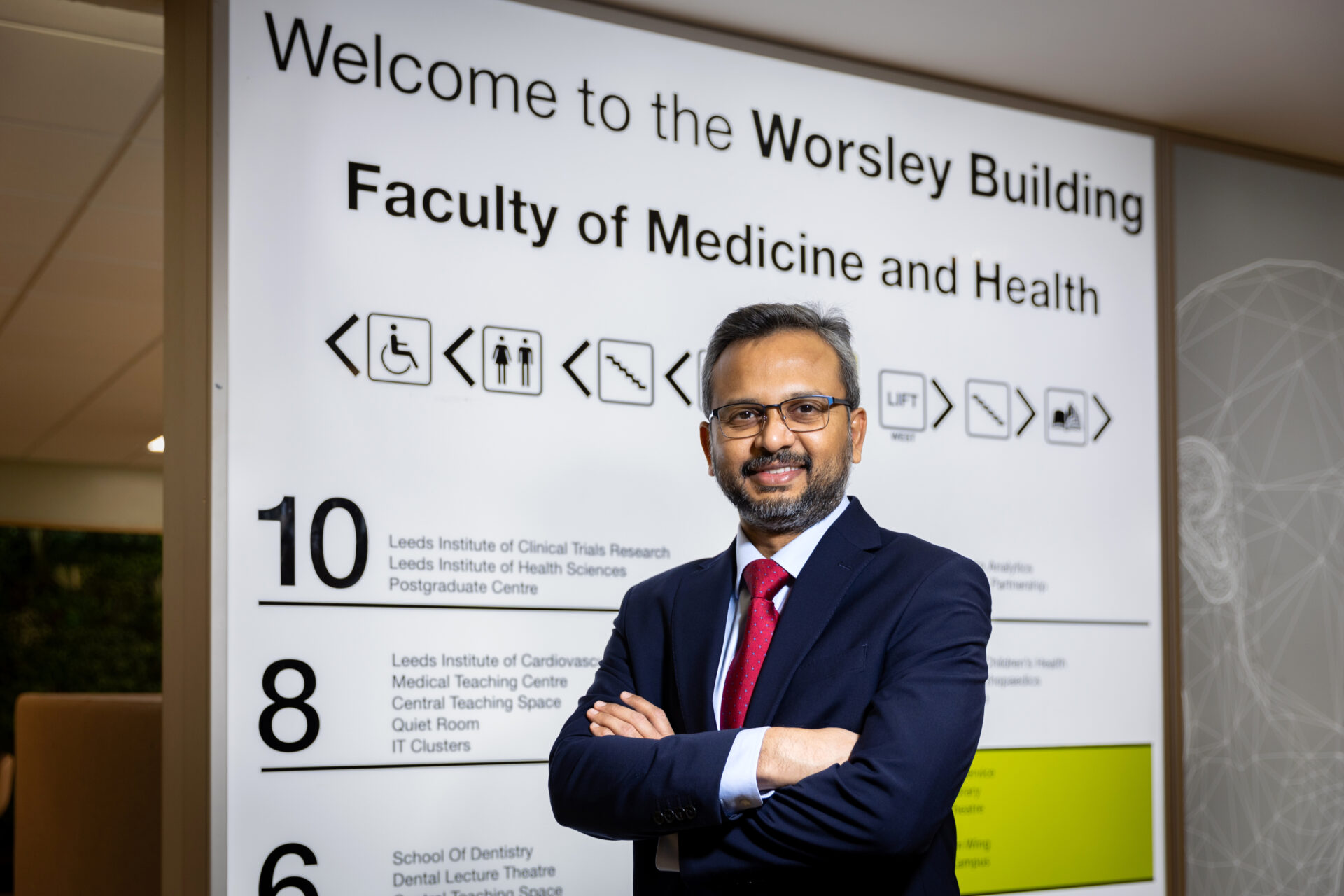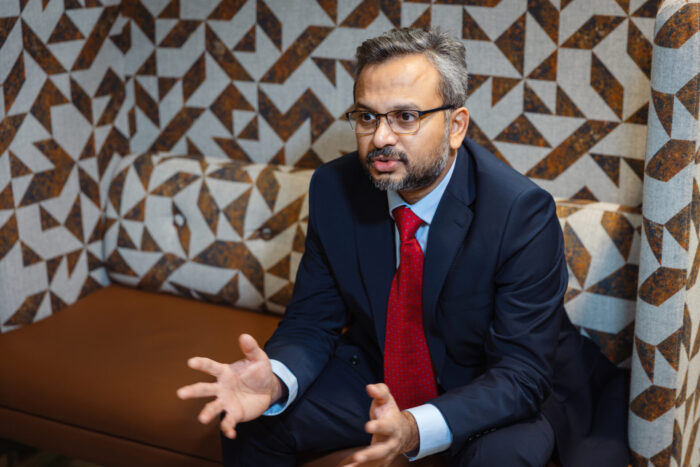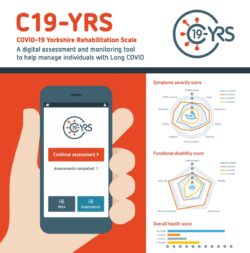Long Covid patient reported app helps overcome socio-economic barriers

Impact Acceleration Account (IAA) funding gave Dr Manoj Sivan the opportunity to overcome socio-economic barriers between medicine and social sciences. He employed a research fellow to help develop a knowledge-sharing app for patients managing long Covid symptoms at home
Dr Manoj Sivan, Associate Clinical Professor and Honorary Consultant in Rehabilitation Medicine with Leeds Institute for Rheumatic and Musculoskeletal Medicine (LIRMM) at the University of Leeds, and an NHS Consultant at Leeds Teaching Hospitals Trust and Leeds Community Healthcare Trust, began his work exploring the long-term effects of COVID-19 while the pandemic was still at its height. ‘By mid to late 2020, it was clear some Covid patients were experiencing long-lasting symptoms – later known as long Covid,’ he explains. ‘As we cared for them, we developed a patient reported tool, C19-YRS: a scale to help us record symptoms so we could better understand, manage and treat them.’
Gaining funding to develop technology and teams
To share the C19-YRS tool more widely, Manoj knew it was crucial to digitise the platform and develop an accessible app. He used initial IAA funding from the Medical Research Council at the University of Leeds to begin collaborating with digital health software company ELAROS. Yet he wanted to test and develop the platform further, so he turned to the Economic and Social Research Council (ESRC) arm of IAA funding via Leeds Social Sciences Institute (LSSI).
Together, we get a different perspective on how knowledge sharing works
Manoj applied for a knowledge exchange fellowship to employ a colleague from ELAROS as a research fellow in the team developing the C19-YRS platform. ‘The project was clear in our minds when we applied for the IAA funding, especially as we knew the work that needed to be achieved in a fixed-term period,’ Manoj says. ‘I believe this clarity helped to progress our funding application quickly, as we identified the person we hoped to bring on board from the start. In fact, it was only a couple of months from application approval to the employee’s first working day.’

Crossing the boundaries of hospital medicine
Though Manoj’s project began in the field of medicine, he’s keen to stress the importance of gaining social sciences funding to reach a wider audience. ‘There’s a socio-economic barrier to technology,’ Manoj explains. ‘Once a patient is discharged from hospital with long Covid, they may have a one-off appointment with their GP. Yet thereon, it’s down to the patient to self-manage their condition. The platform gives them the resource to monitor and report their symptoms, helping them manage their condition. It’s also linked to our clinical service, so the information from the app is relayed to our web platform for the clinicians. This gives us the vital information we need to support more people with long Covid.’
Long Covid is a public health problem, and our digital platform means we can reach people in the community outside of a clinical environment. Interdisciplinary work with LSSI, therefore, is vital, as we can step beyond a medical setting to deliver resources and care for people in their homes
Collaborations secured thanks to IAA funding
‘One of the key things IAA funding provides that’s missing from other grants is the knowledge exchange element,’ Manoj says. ‘Having people from different areas of the healthcare industry become researchers and work with our NHS Long Covid team is incredibly powerful. With a team of 20 NHS employees, myself and two key colleagues from ELAROS – Román Rocha Lawrence, who was our research fellow, and company CEO Professor Paul O’Brien – developing the app for public use was a truly collaborative effort.’
‘The knowledge fellowship is, essentially, an exchange of staff as they become university employees for a set period,’ adds Manoj. ‘They’re given the chance to collaborate with the university in ways they probably didn’t realise they could, and we, as university staff, gain a stronger understanding of how we can work with external organisations. Together, we get a different perspective on how knowledge sharing works.’

More than 40 NHS trusts and around 20,000 patients across the UK now use the C19-YRS app, including NHS England, who awarded Manoj’s team a grant to study and evaluate the outcomes of long Covid nationally. ‘On the back of the NHS England grant, NHS Scotland gave us further funding, which is currently in progress,’ concludes Manoj. ‘This in turn has led to international work – none of which would be possible without the initial IAA funding through LSSI.’
The IAA supports a portfolio of activities and resources across the social science community which will maximise the potential for impact of social science research and contribute to economic and societal development regionally, nationally, and internationally. To find out more about LSSI IAA funding please visit our dedicated webpage.
Link to C19-YRS publication.
